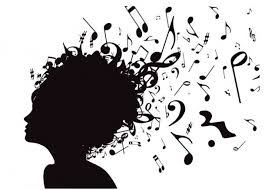Go to the gym if you are looking to tone your body. Listen to music if you want to train your brain.
One Johns Hopkins otolaryngologist says that music stimulates the brain like few other things. Music is an excellent tool to keep your brain active throughout the ageing process. It gives your brain a complete workout.
Research has shown that music can help reduce anxiety, blood pressure, pain, and mood and improve memory, sleep quality, mood, mental alertness and sleep quality.
The Brain-Music Connection
Experts are trying to understand how the brain can hear and play music. Stereo systems emit vibrations that travel through the air and eventually reach the ear canal. These vibrations touch the eardrum, and they are converted into an electrical signal that travels from the auditory nerve to our brain stem.
Johns Hopkins researchers observed dozens of musicians and rappers perform jazz while lying in an fMRI (functional magnetic resonance imaging) machine. This allowed them to see the areas of their brains lit up.
Music is mathematical, structural and architectural. It is based on the relationships between each note. Although you may not realize it, your brain must do a lot more computing to make sense of it,” says one otolaryngologist.
Music can give you a boost to your brain every day.
Music’s power is not limited to research. These are ways to bring more music (and brain benefits) into your life.
Even in terms of brain development, music can play a key role. Training to play an instrument, for instance, is believed to increase grey matter volume in certain areas of the brain, not unlike how physical exercise can tone and enlarge muscles.
Jump-start your creativity
Experts suggest that you listen to your grandkids and kids. Experts suggest that many of us listen to the same music and genres as in our 20s and 30s and avoid listening to anything new.
The brain is challenged by new music differently from old music. Although it might not be pleasurable at first glance, the unfamiliarity forces the brain into a struggle to understand the new music.
Remember a long-forgotten memory?
You can reach for familiar music, especially if the song is from the same period as your memory. For example, listening to The Beatles could bring back the first time you saw your spouse.
Pay attention to your body.
Pay attention to your reactions to music and find the one that suits you best. One person’s music might be distracting, while another might find it helpful. Another person might feel more relaxed listening to music that helps them focus.
Definitions
Magnetic resonance imaging: Large machine that uses powerful magnets to view inside your body. MRI testing is not radiation-free, unlike an X-ray. This test involves lying on a narrow, rectangular table inside a tunnel-shaped scanner. Health-care professionals will monitor you from another room. Ask your doctor about open MRIs that are not as close to your body if you feel anxious in enclosed spaces.

